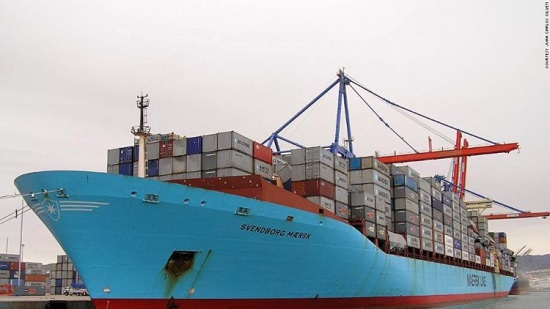This post has already been read 1190 times!
For an economy just smarting out of recession and angling to diversify its well-worn petroleum economy, a tactless free entry into the continental free trade era is not a strategy but tardiness. So, barely two months after the implementation of the African Continental Free Trade Area (AfCFTA) agreement took off, Nigeria is already on the back foot. As a signatory to the pact and a major stakeholder on the continent, it is an economic suicide to have no defined game-plan or known policy on AfCFTA implementation, and clearly marked items of cross-border trade. To save Nigeria’s blotches is the imperative of government agencies, private sector and regulatory bodies having an agreeable homegrown implementation plan, not only to compete profitably but also to rally the United Africa’s agenda to a success.
The idea of a continental free trade pact is significant for a continent of 54 independent countries apart. Yet, the region is the poorest and most backward in the world. It makes good economic sense that these silo countries cooperate, trade with one another by consensually eliminating artificial barriers to regional trade and snap red tapes to free movement of persons and goods. In theory, that is more than 1.3 billion people producing and exporting on the continent with minimal tariff, and a combined net output of $2.2 trillion a year. On paper too, is the prospect of wealth distribution among Africans and less dependency on foreign goods. Those were the goals of the AfCFTA when 54 of the 55 African Union members gave endorsement to bring it into force in May 2019, and set its implementation date for January 1, 2021.
With over 200 million people, the largest economy and a dominant voice in the African Union, Nigeria should naturally have a rallying effect in this economic agenda, especially in the supply chain. Curiously, the Organised Private Sector and Manufacturers – the active players in the new era – have lately expressed worry over Nigeria’s poor preparedness. Not only are their members not aware of the implementation policy, the regulatory agencies of governance are also not in the know of changes in trade procedure. Both suggest that Nigeria might have entered into an era of free trade without anything to export to African continent, when the likes of Ghana, Egypt and South Africa have already made debut cargo exports through the AfCFTA window.
The Minister of Industry, Trade and Investment and the National Action Committee should be telling Nigerians exactly what production line Nigeria will be contributing to continental trade growth rather than empty rhetoric of Nigeria’s commitment to the success of the AfCFTA, which should be a given. Free trade is an opportunity to grow local industries for regional competitiveness. But that is a pipedream where the cost of production is cut-throat because of the unfriendly business environment that scares foreign investors and wrecks local firms. A serious administration should have negotiated the ease of doing business and incentives to local production while ratifying the free trade pact with other countries.
At a time of global pandemic, Foreign Direct Investments (FDI) are bound to be scarce. On the flip side is the wisdom of keeping local production lines running, to support a depressed economy and cushion a country on the brink. Sadly, capacity utilisation in manufacturing had hovered between 50 and 57 per cent in the last five years. Last December, MAN raised the alarm that more firms risk collapse in the absence of forex to acquire raw materials.
Charity should begin from home. The logistic nightmare in the country, yet unattended, would be a disincentive to continent free trade. The dearth of basic infrastructure and uncompetitive nature of manufactured products will not only constrain Nigeria from securing maximum trade benefits, it will also deprive the continent of its high expectations. Studies have shown that the lack of adequate modern transport infrastructure readily impedes traders’ desire to reap the full benefits of free trade. The intractable gridlock at the major port in Apapa is still an eye-sore and a national embarrassment. Isn’t it most unfortunate that business entities pay as much as $4,000 to truck a 40ft container 20km to the Nigerian mainland, almost as much as it costs to ship a container about 12,000km from China? That is not how to do business or domesticate an open trade pact.
There is no better time for the government agencies, regulatory bodies and the private sector to have a common front to save Nigeria’s economy. The private sector should be in the negotiating party and cutting a good deal of national economic interest. It is disturbing that the Centre for International Private Enterprise (CIPE) lately reported that two-thirds of the 1,800 Medium Small and Micro-scale Enterprises (MSMEs) surveyed in Nigeria on the effect of the AfCFTA declared not knowing of the deal’s existence. That is untidy. The private sector, especially manufacturers, should have more than a passing interest in the free trade programme to capitalise on emerging opportunities. The private sector ought to strategically position itself to ensure that other laws that would enhance gainful participation were enacted.
The road to a United Africa is certainly bound to be long and rough. The pre-existing nuances that are peculiar to African markets in terms of alignment with Western partners, language, visa restrictions, currency, insecurity, Customs Union, existing trade agreements in regions, dependence on commodity exports, infrastructure, low manufacturing activities among others, raise concerns about the expected progress from the AfCFTA market. But Nigeria should take a respectable lead, from getting things right at home and rallying forces on the continent.



